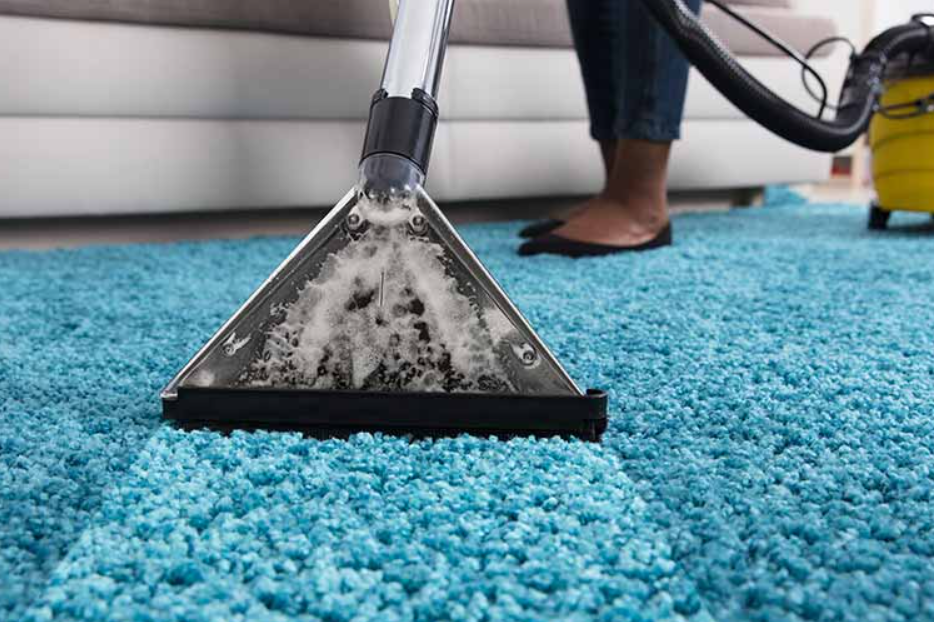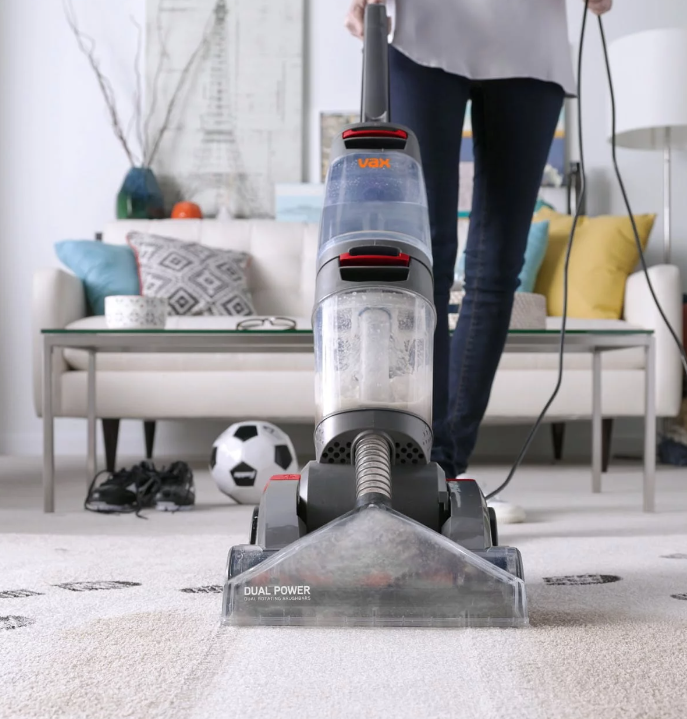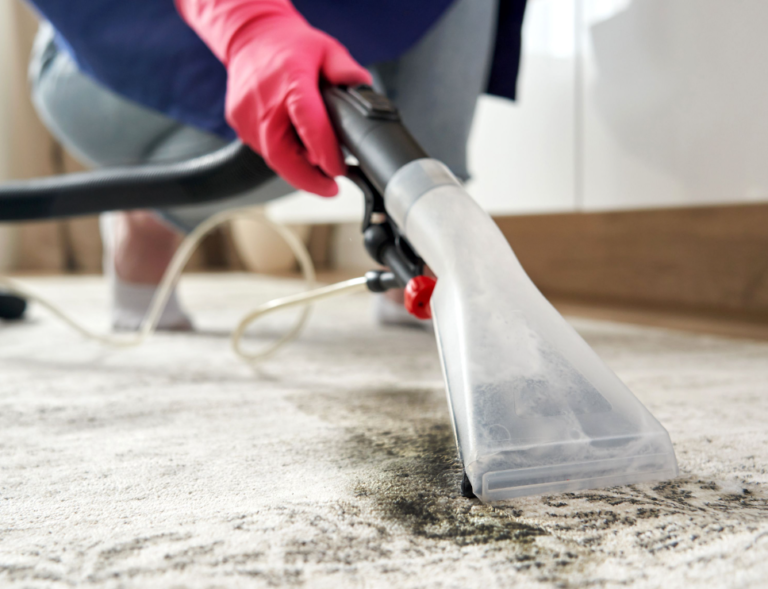Carpeted floors are a common feature in many homes as they provide warmth, comfort and style. However, most people don’t give much thought to how those carpets are kept clean. With so many carpet cleaning products and methods available, it’s natural to wonder – are all those chemicals and fumes actually safe? As more research emerges on the potential health impacts of frequent exposure to volatile organic compounds (VOCs), this is a very valid concern.
What Are Carpet Cleaning Fumes?
Carpet cleaning fumes refer to the smells that are emitted from chemicals used in carpet cleaning solutions and the carpet cleaning machine itself. Most carpet cleaners use some type of cleaning solution containing chemicals like ammonia, bleach, or other solvents to lift dirt and stains from your carpets. As these chemicals dry, they release fumes into the air. The high heat from the carpet cleaning machine can also cause additional chemicals to vaporize.

Are Carpet Cleaning Fumes Harmful?
Many of the chemicals found in commercial carpet cleaning solutions are considered “volatile organic compounds” or VOCs. VOCs are organic chemicals that have a high vapor pressure at normal room temperature. This means they easily become gases or vapors in the air. Breathing in high concentrations of VOCs carpet cleaning fumes over long periods can potentially cause various health issues.
Some common VOCs in carpet cleaning fumes include:
- Ammonia – Linked to eye and respiratory tract irritation. Breathing high levels may damage the lungs.
- Bleach – Chlorine bleach releases chlorine gas which can irritate the eyes, nose, throat and lungs. It may also cause dizziness, coughing, and shortness of breath.
- Formaldehyde – A known carcinogen that may cause cancer. It can also cause eye, nose and throat irritation and issues like bronchitis.
- Solvents – Used to dissolve dirt and grease, solvents like acetone, methanol and ethanol are linked to headaches, dizziness and nausea when inhaled.
Prolonged or repeated exposure to high levels of these VOCs from carpet cleaning fumes has been shown to potentially cause more serious health problems over time like asthma symptoms or even cancer.
How To Reduce Exposure To Carpet Cleaning Fumes
When you hire someone to clean your carpets it’s good to ask about the chemicals they use in their carpet cleaning machine. You can request eco low VOC options if available. Here are some additional tips;
- Make sure to open windows during and, after cleaning to let the house air out.
- It’s best not to stay in the home until the fumes from carpet cleaning have completely disappeared.
- Consider using a HEPA air purifier to help eliminate any chemical residues.
- Opt for steam cleaning, which relies on water of strong chemicals.
- If you prefer a do it yourself approach try using toxic vinegar or baking soda instead of commercial formulas for cleaning.
When handling any type of carpet cleaning equipment or solution, on your own be sure to follow the instructions and wear protective gear like gloves and a face mask. Proper ventilation and limiting your exposure time can reduce health risks associated with carpet cleaning fumes.

Is It Safer To DIY Clean Carpets Or Use A Professional Carpet Cleaning Machine?
There are benefits to both DIY cleaning and using a professional service. Doing it yourself allows you to choose non-toxic products and control chemical exposure. However, professional carpet cleaning machines are designed to thoroughly clean deep into carpet fibers and remove more embedded dirt and allergens than a home vacuum.
Many professional companies now use “green” cleaning systems that heat water to high temperatures instead of relying on harsh chemicals. Steam cleaning thoroughly cleans carpets without introducing toxic carpet cleaning fumes into your home. Eco-friendly cleaning products are also becoming more common options.
A pro service can complete the job more efficiently than DIY methods too. Their industrial-grade carpet cleaning machines are much more powerful than home models. Professionals also have specialized tools and the experience to identify stains that require extra attention.
So while DIY avoids potential exposure to carpet cleaning fumes, professional cleaning may provide better results without toxic chemicals if you communicate your health concerns up front. A pro can also help maintain your carpets’ appearance longer between cleanings.
Are There Safe Alternatives To Traditional Carpet Cleaning Methods?
If you are worried, about the health effects of breathing in fumes from carpet cleaning products there are some ways to clean your carpets that don’t involve using chemical cleaners;
- Dry cleaning. This method involves using a dry absorbent compound and a carpet cleaning machine with a beater bar to remove dirt without water or chemicals.
- Steam cleaning. High temperatures are used to break down dirt and grime without chemicals. You can opt for steam cleaners that use essential oils or plant based solutions.
- CO2 cleaning. This technique uses ice pellets to lift dirt from carpet fibers when combined with a carpet cleaning machine. It is free of chemicals.
- Encapsulation. A protective layer is applied to trap dirt in the carpet making it easier to vacuum. Some products contain ingredients derived from plants.
- Vacuuming with baking soda/vinegar. For maintenance regular vacuuming along with natural spot treatments can help keep your carpets clean without exposing yourself to fumes.
While these methods may not be as powerful as cleaning techniques they offer alternatives for individuals concerned about potential health risks associated with ongoing exposure, to carpet cleaning fumes. Consider asking professionals about eco cleaning systems they may provide.
Final Thought
Carpet cleaning fumes can potentially introduce harmful VOC chemicals into your home environment. But by taking precautions like proper ventilation, non-toxic product selection, and routine professional cleaning, you can minimize exposure risks and keep your carpets fresh and clean safely.
